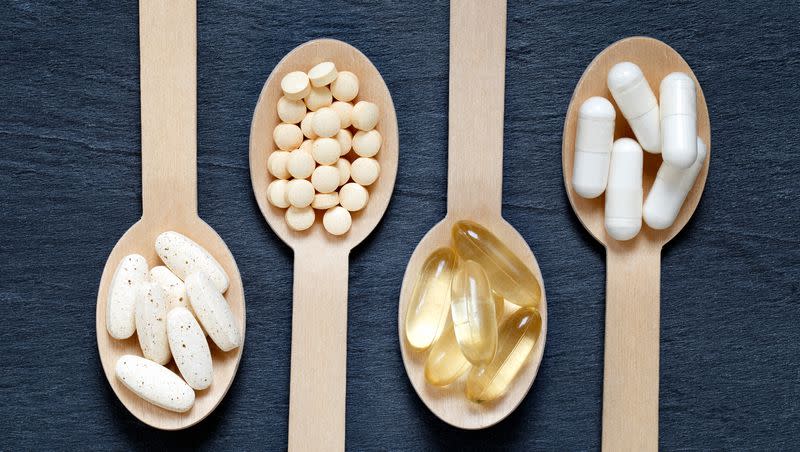How to know if multivitamins are necessary for your health

“Half of all American adults — including 70% of those age 65 and older — take a multivitamin or another vitamin or mineral supplement regularly,” per Johns Hopkins University.
In 2022, the total revenue of the vitamins and supplements industry was $38.9 billion, according to reports by IBIS World. “Money that Johns Hopkins nutrition experts say might be better spent on nutrient-packed foods like fruit, vegetables, whole grains and low-fat dairy products,” the university emphasized.
What is a multivitamin?
A multivitamin is a dietary supplement that contains a combination of vitamins, minerals and sometimes other ingredients like herbs. They became available in the early 1940s, designed to provide nutrients that may not be consumed in sufficient quantities through diet alone, per the National Institute of Health.
Multivitamins can come in many forms (pills, liquids, powders). When choosing a multivitamin, the Harvard School of Public Health said, “Look for one that contains the Recommended Daily Allowance amounts and that bears the United States Pharmacopeia (USP) seal of approval on the label.”
The Harvard school added, “This seal ensures that the ingredients and amounts of that ingredient listed on the label are contained in the pill. The USP also runs several tests that confirm the pill to be free of contaminants like heavy metals and pesticides and has been manufactured under sanitary and regulated conditions.”
Who needs a multivitamin most?
Even when we’re at our healthiest, ensuring we receive all the essential vitamins and minerals our bodies need is challenging.
Modern lifestyles and the fast pace of today’s society often lead to nutritional gaps. Also, various life stages and conditions may increase the need for additional dietary support.
According to Primal Harvest, certain groups may be more in need of including a multivitamin in their diet:
Vegetarians and vegans: Although having a plant-based diet has its health benefits, “Vitamin B12, calcium, vitamin D, iron, and zinc are just a few examples of vitamins that can be easily missed in some vegetarian and vegan diets,” Primal Harvest said.
Older adults: As we age, the likelihood of experiencing vitamin deficiencies grows since our body’s capacity to absorb and process these vitamins diminishes with time.
Pregnant women: Prenatal vitamins are an excellent way for the baby and mom to get enough nutrients. “During pregnancy, women require higher levels of certain vitamins and minerals to ensure healthy fetal development,” Primal Harvest added.
People with chronic illnesses: Certain illnesses can drain the body of vitamins and hinder the absorption of nutrients.
Related
Are there risks to multivitamins?
Health experts warn that the most noticeable drawback of taking multivitamins is the potential imbalance in receiving certain nutrients; you might end up with an excess of some or a deficiency in others.
“Because multivitamins have multiple nutrients packed in a small package, many times the amount of each vitamin is small or limited,” endocrinologist Brittany Henderson told Allure. “It is important, therefore, to look at the dosing of each vitamin on the back of the bottle (and) run it by your medical practitioner to make sure it’s giving you sufficient coverage in each area.”
It’s also important to note that multivitamins should never take the place of nutrient-packed foods. “If you feel you may benefit from a multivitamin, there is no harm in taking one,” Dr. Pieter Cohen, associate professor at Harvard Medical School, told Harvard Health.
“But be mindful of its limitations,” Cohen added. “Multivitamins offer some extra vitamins and minerals you may occasionally lack from your regular diet, but they are not a replacement for healthy eating. And taking them doesn’t offer special health benefits or disease protection.”

